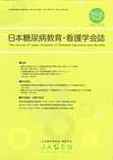Japanese
English
- 有料閲覧
- Abstract 文献概要
- 参考文献 Reference
- サイト内被引用 Cited by
本研究の目的は,食事療法の自己管理が困難な2型糖尿病患者に対する熟練看護師の姿勢とアセスメントについて探求することである.調査対象は,外来で看護個別相談・指導にあたっている糖尿病看護経験5年以上の実践能力の高い看護師5名で,面接法によりデータ収集し質的に分析した.熟練看護師は,【生活者の視点に立ち患者を信じ,正直に何でも話し合える信頼関係を築く】ことでアセスメントの質を高めていた.【生活や食の意味を含め患者背景を把握する】ことは,自己管理につながる解決の糸口を捉える上で中心的な位置を占め,【食生活の変更に向けた気持ちや考え,行動のわずかなよい変化や努力を見出す】【患者の身になり非言語的サインに注目し,食事療法の自己管理を行う中で抱く気持ちを明らかにする】【患者と共に自己管理の取り組み方法を振り返り,潜む問題を探る】際にも関連づけアセスメントしていた.そして,これらを統合的に捉え直観的推論も用いて【自己管理の話をする時機や提案を受け入れる時機を逃さず捉える】ことを行い,看護援助につなげていた.
The aim of this study is to reveal the stance and assessment conducted by expert nurses in respect to patients with type 2 diabetes having difficulty maintaining diet with self-management. The subjects surveyed were 5 nurses with high practical ability and with at least 5 years of experience in diabetes nursing in which they individually counseled and guided patients at outpatient clinics. We collected data through interviews and analyzed it qualitatively.
Expert nurses had improved the quality of the assessment by “believing in patients from the view of living person and establishing a relationship of trust to talk each other about anything honestly.” Additionally, “grasping the patient's background including the meaning of life and eating” occupied the central position to find a clue for solution relating to their self-management. Moreover, expert nurses linked their assessment to the backgrounds of the patients when “finding any little change or an effort in their feelings or thoughts and actions for changing dietary habit,” when “judging how patients feel while maintaining diet with self-management by putting themselves in the patients' shoes and paying attention to the nonverbal body language of the patients,” when “investigating the hidden problems looking back the approaches of selfmanagement with the patients.” Furthermore, in apprehending these factors syntagmatically and using their intuition, expert nurses were “seizing the timing to explain self-management or to accept suggestions without fail” in their nursing support.
Copyright © 2010, Japan Academy of Diabetes Education and Nursing. All rights reserved.


